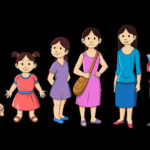When considering the different birth delivery options, there are a variety of different areas that doctors and health professionals specialize in. But as a mother-to-be, you need to know which option will be best for you, especially if it will be your first time giving birth.
Of course, there will be risks involved no matter which delivery option you choose but being informed about your different options will help alleviate any doubts and concerns you may have, allowing you to make an informed decision that will be best for you and your baby.
There are labour and delivery nurses, midwives, obstetricians, and so many more. In fact, the specific job duties of each may seem a little confusing. Here, we’ll dive a little deeper into some of these labour and delivery professionals on their responsibilities and education to help put your mind at ease.
What is a Doula?
You’ve probably heard of many pregnant women who say that they have a doula to help them with their birthing process. Many may think that this is the same thing as a midwife, but the two actually serve very different purposes. Doulas are labour assistants, providing the mother-to-be with physical, emotional, and sometimes even spiritual support. They are professionals, providing support for the mother before, during, and after the labour and delivery processes. They do not deliver babies.
Doulas are usually hired when a woman chooses a home birth or birthing centre, but some hospitals allow women to have their doulas in the delivery room. Research has shown that having doulas present during the labour and birthing processes are linked to more positive outcomes. These include more positive feelings about birth, decreased need for pain medication, and possibly even reduces labour time and the need for a C-section.
Becoming a doula requires certification through training.
What is a Midwife?
Midwives are trained health professionals that provide support for mothers-to-be before, during and after labour and delivery, and some may even deliver babies— especially if in a home birth setting or birthing centre. Like obstetricians, midwives are trained in delivery in order to ensure a successful birth. However, birth injuries, such as hypoxic-ischemic encephalopathy, may occur due to negligent care during delivery, including hospitals, birthing centres, and home births.
Like doulas, midwives are used when a healthy woman with a low-risk pregnancy decides on a home birth or a birthing centre, and they too can also be present in a hospital room. Midwives can have different levels of certification, ranging from no certification (also called lay midwives) to a professional certification (also called CPMs, which stands for certified professional midwife).
What is a Maternity Nurse?
Maternity nurses are the nurses who provide care for women after the delivery of their babies. A maternity nurse’s main job is to teach a new mother how to care for her new baby. Many maternity nurses also provide support to women during the labour and delivery process. They may administer IVs, but not epidurals.
They are also considered to be registered nurses (RNs), so many of the same educational requirements apply to a Bachelor of Nursing, plus extra years of education in Midwifery. Sometimes, maternity nurses earn a Bachelor of Midwifery.
Obstetrician
An obstetrician is a medical doctor that deals with all aspects of pregnancy, including labour and delivery. They are the doctors who deliver babies in hospital settings and are specially trained and equipped to deal with complications of pregnancy, such as C-sections, placenta issues, preeclampsia, and ectopic pregnancies. Obstetricians are also technically gynaecologists, as they deal with female reproductive health, but gynaecologists are not obstetricians because they are not specialized in conception, pregnancy, or delivery. Both are medical doctors (MDs) who have completed medical school and residency training.
Conclusion
All of these medical and birthing specialists are knowledgeable and specifically trained to support a woman through her pregnancy, labour, and delivery processes. Of course, some require more schooling and more medical knowledge, but that doesn’t make them any less professional or proficient at what they do.
Ultimately, you’re the mother-to-be, it’s your body, and you have the power to decide which delivery option you want, but you also have to consider the risks involved as well. Consult with professionals in the birthing options you choose to make the best choice for you and your baby.
- Baby Monitors with Noise Monitoring: How They Work and Why They Matter - October 2, 2025
- Attachment Parenting Guide: Principles, Practices, and What to Expect - September 9, 2025
- Understanding Your Baby’s Cry: A Parent’s Mini Guide - June 23, 2025
- Bottle vs. Breastfeeding: What Works for You and Your Baby - June 18, 2025
- 10 Yoga Poses For Kids at Home: Benefits Of Yoga For Kids - June 12, 2025
- Parenting Guide to Child Development: Key Milestones from Birth to 10 Years - June 4, 2025
- Summer Vacation Plans Ideas with Kids - May 27, 2025
- Nutritious Dried Fruit Treats for Toddlers (16–24 Months) - May 25, 2025
- Importance of Screen Time Management for Kids - May 24, 2025
- The 6 Most Common Pregnancy Concerns First-Time Moms Have - May 23, 2025













